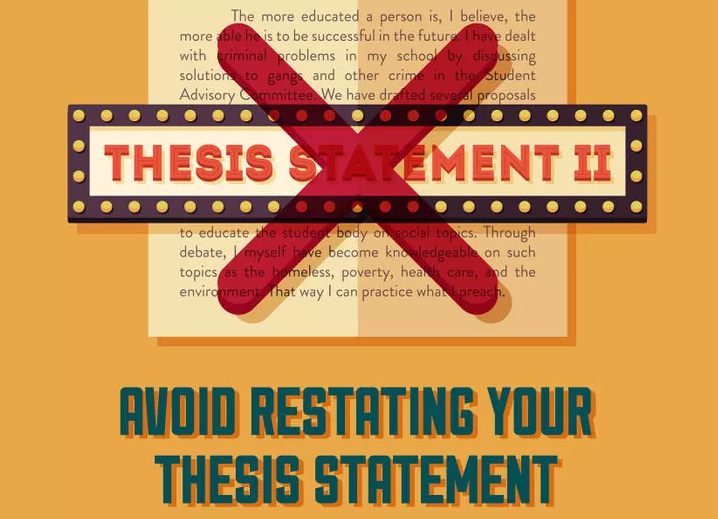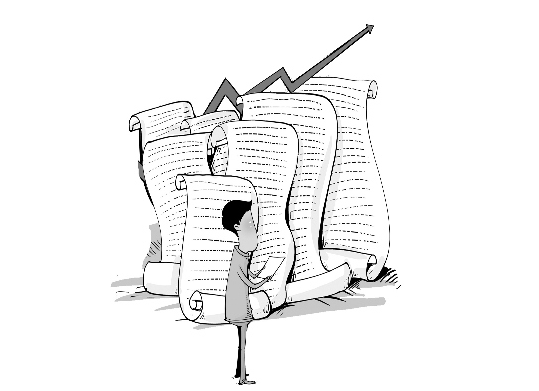留学生们在废寝忘食夜以继日好不容易写到了Essay收尾的时候,千万不要因为写得差不多就有所懈怠,要知道essay的结尾也就是Conclusion部分在Essay整篇文章中有着举足轻重的作用。就算Introduction写得再好而Conclusion敷衍了事的话整篇Essay就会显得头重脚轻,首尾呼应的写作原则在英语写作中照样适用。那么本文中美伦教育小编就给大家整理了一篇英语教程,告诉大家如何高质量的去完成Essay Conclusion给自己的Essay一个完美的收尾,获得更好的分数。
Think of the conclusion as the bow on a beautifully wrapped gift. It ties everything together and presents your essay as a polished, cohesive whole. Your conclusion should briefly sum up everything you talked about in your essay. Then, it should end provocatively, or with a verbal flourish. With a little work, you can hit your essay out of the park with a great ending.
Part1.Brainstorming Your Conclusion
1).Consider the “So what?” question.
A helpful way to generate your conclusion can be to imagine that your reader has just asked you “So what?” about your argument. Why does what you’ve written matter? What can you say in your conclusion to help convince your readers that they should care about your ideas and argument?[1]
Asking yourself the “so what?” question as you write your essay can also help you dig below the surface of your ideas.
2).List the main ideas in your essay.
Having a sense of what your argument’s main ideas were will help you know what you need to include in the conclusion. You don’t have to cram every point and subpoint into the conclusion: just hit the important things.[2] essay writing service check on www.pnstudy.com
Knowing your essay’s focus will also help you avoid introducing any new information or topics in your conclusion.
3).Look for any themes you introduced in the first paragraph.
You can get a nice sense of closure by returning to the theme you opened with.[3] See if you can take that theme a step further when you bring it back in the conclusion.[4]
4).Consider whether you can link your argument to a different context.
One helpful way to conclude an essay is to extend your discussion’s relevance to a broader “big picture” context. This helps your reader understand how they could apply the arguments you made to another topic, giving your essay a bigger sense of purpose.[5]
Part2.Writing the Conclusion
1).Start with a small transition (optional).
This can be a cue to your reader that you’re ending your essay, and that they need to pay attention. Though a lot of essays begin their last paragraph with a transition, you don’t need to if you feel like it’s clear enough that you are ending your essay. The transition can be very simple.
You should probably stay away from overused phrases such as “In conclusion,” “To summarize,” or “In closing.” Because they are used so often, they come across as cliched and stiff.[6]
2).Briefly summarize some of the main points.
Try taking the first sentences of each body paragraph (your topic sentences) and rewriting their main points in two or three sentences. This will reinforce your essay’s argument, reminding the reader what you were talking about, or arguing for.essay writing service check on www.pnstudy.com
Avoid summarizing your points exactly as you wrote them. Your readers have already read your essay. They don’t have to be reminded of every single point you just made.
3).Keep it short and sweet.
There’s no hard and fast rule for how long your conclusion should be, but for many high school and college essays, a good rule of thumb is that your conclusion should be anywhere from 5 to 7 sentences long. Any less, and you probably haven’t summarized your points enough; any more, and you’re probably rambling on a bit too much.
4).Be sure to work your thesis statement, if you have one, into the conclusion in one way or another.
If you have a thesis, you should reference it as you end your essay, even if it’s only in passing. Remember, your thesis is the main point of your essay, something you’re arguing for. If someone who reads your conclusion still doesn’t know what your thesis is, you haven’t done a good-enough job of telling them.
Find a way to rework your thesis in an interesting way, using different language. Restating your thesis using the same words strikes the reader as lazy and doesn’t offer new insight into your argument.
5).Write authoritatively on your subject.
Sounding authoritative means using the right words (as opposed to just any old words), relying on solid evidence from other sources, and believing in your own ability to write.[7] Don’t apologize for your ideas or use heavily qualifying language.[8]
6).End with a flourish.
Your last sentence should be elegant, to the point, and provocative. This is easier said than done. But it all starts with illustrating the point of your essay. Ask yourself What is my essay about, and what am I saying? and then move on from there.[10]essay writing service check on www.pnstudy.com
(a)End with a little bit of irony. Be playful with your last sentence and pose an ironic by-product of what you’re talking about. Then, the end of your essay becomes especially provocative.
(b)Make an appeal to emotions. Much of the time, essays are very rational, forgetting about emotions. That’s why appealing to people’s emotions can be a really powerful way to conclude an essay. Done in the right way, this will help the article have heart. Just make sure that your conclusion is in keeping with the tone of the rest of your essay.
(c)Include a call to action (use sparingly). If your essay is truly about getting people to change, then including a call to action is a useful tool to rouse your base. But use it sparingly: In the wrong context (an expository essay, or an argumentative essay) it can be overkill.
Part3.Avoiding Common Pitfalls
1).Avoid just restating your thesis.
A common problem with many conclusions is that they simply restate the thesis and summarize what’s already been said. This doesn’t give your readers a compelling reason to read the conclusion — they already know what it’s going to say.[11]
Instead, try to take your reader to the “next level” in your conclusion, or provide some further sophistication to your original ideas.
2).Resist the urge to quote.
There is usually no need to clog up the ending of your essay with quotes and analysis — that should have been what you were doing in your main paragraphs. The conclusion is the place where you tie everything together for your readers, not where you introduce new information.[12]
3).Don’t use fluffy language.
Don’t use too many high-flying, two-dollar words in your conclusion. You want it to be readable and relatable, not rigid and boring. It’s much better to have clear, concise language than a meandering sentence stuffed with overlong words.[13]
Also don’t use “Firstly,” “Secondly,” “Thirdly,” etc. to bookmark your points. Make it clear what you’re saying and how many points you’re making.
4).Keep new material out of the conclusion.
Now is not the time to introduce new ideas or content. That takes the focus off your original argument and could confuse readers. Don’t jumble things up — relay simply where your essay has led and state what you have come to think after conducting the necessary analysis.
5).Don’t focus on a minor point or issue in the essay.
The conclusion is not the time to nitpick with a small theme in your essay. In fact, it’s the time to step back and focus on the big picture. Make sure your essay focuses on the heart of the essay, not one strand of hair.[14]These words are not advanced ways to start a transition.
上一篇
下一篇











